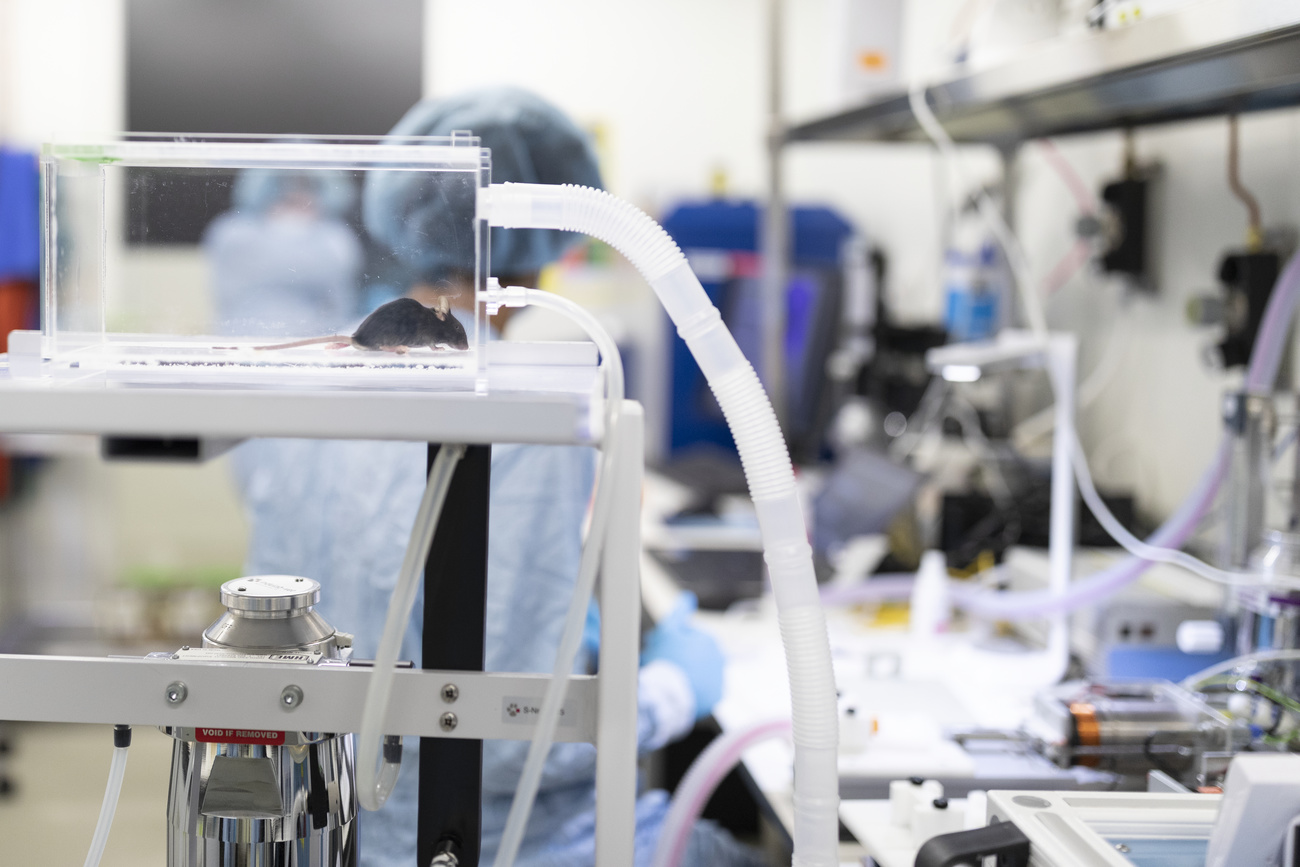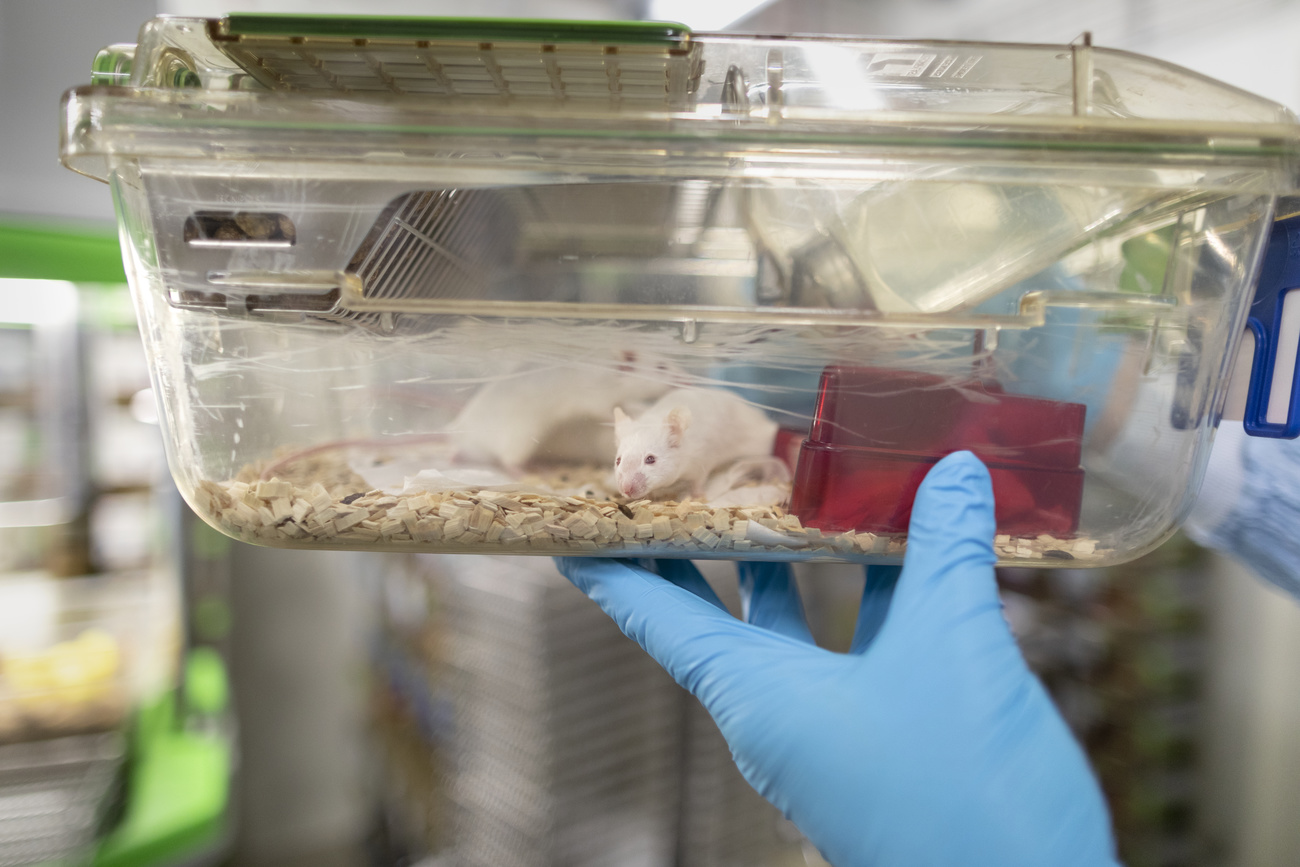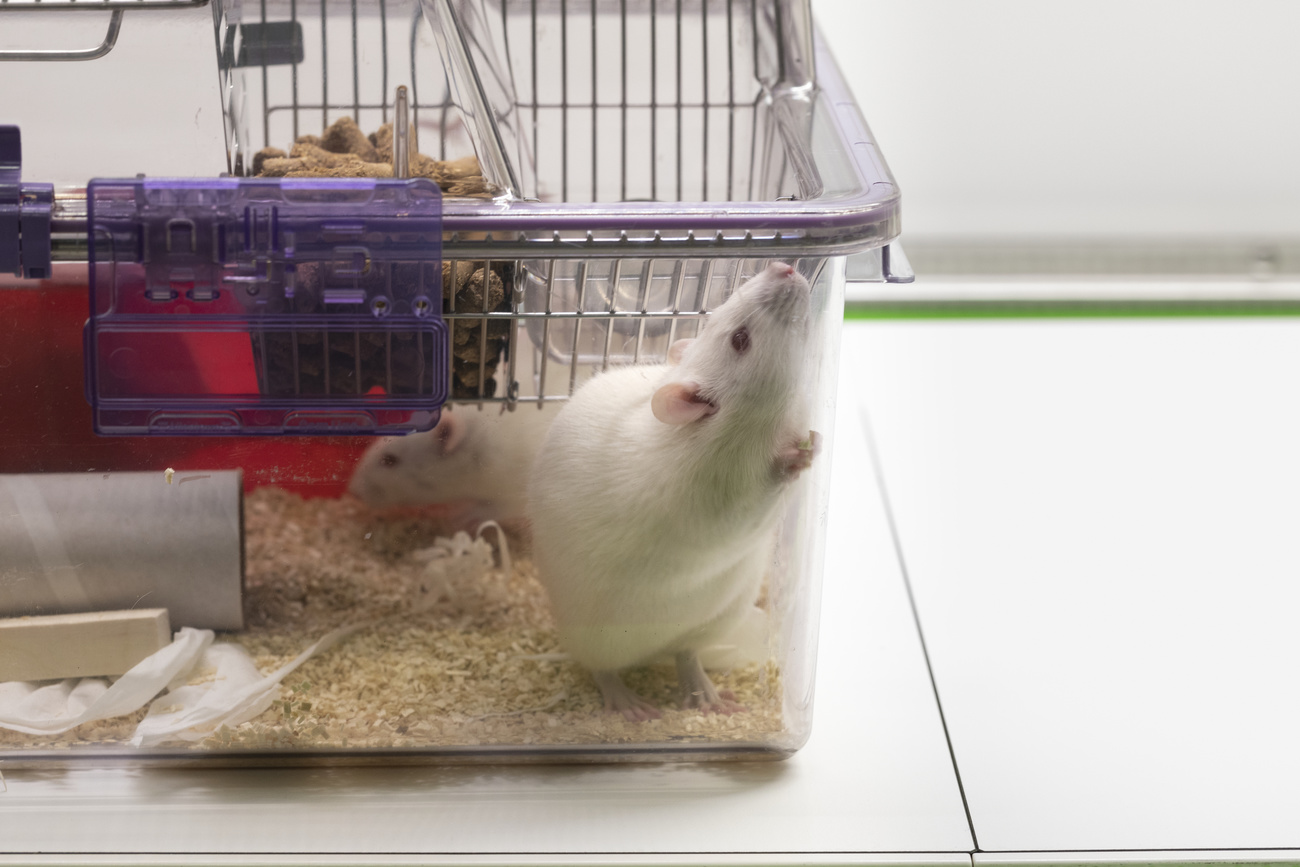Switzerland to vote again on animal testing ban

Animal welfare activists want a complete ban on experiments on living creatures in Switzerland. Their proposal, to be put to a nationwide vote on February 13, was considered too extreme by parliament, which feared it would hamper medical and scientific research in Switzerland.
What is it all about?
For the fourth time in the nation’s history, Swiss voters are being called upon to approve a ban on animal testing. They have already voted down three people’s initiatives on the topic: in 1985 (70% against), 1992 (56% against) and 1993 (72% against). The latest attempt seeks to ban all experimentation on animals and humans, and stop the import of any new products developed using such testing.
Is animal experimentation widespread in Switzerland?
About 600,000 animals were used each year for experiments over the past decade, but this figure is steadily going down according to statisticsExternal link from the Federal Food Safety and Veterinary Office. In 2020, a total of 550,107 creatures were experimented on in Swiss laboratories, of which the vast majority were mice (346,000), birds (66,000) and rats (52,000).
International comparisons are difficult to make, since each country has its own way of counting animals used in research. According to official figures, laboratories in France and Germany experimented on 1.8 million and 2.9 million animals, respectively, in 2019.
In Switzerland, most animal experiments are carried out by businesses and in universities. In 2020, over 60% of these procedures were performed during basic biology research, such as testing of scientific hypotheses or harvesting of cells and organs.
What is the current legislation on this?
The federal legislation on protection of animalsExternal link, which became law in 2008, is one of the strictest and most comprehensive in the world. An authorisation is required for every laboratory experiment, and for any confinement of animals. Researchers have to prove that benefits to society outweigh the suffering inflicted.
To determine if testing is really necessary, “degrees of severity” are predefined: from degree 0 that involves no constraints on the animals (such as observational studies) to degree 3 that imposes severe constraints (such as deliberately transplanting malignant tumors).
In addition, experimentation is authorised only if no alternative procedure exists to address the research question. Use of animals in research is governed by the 3R principle: replace (find another way to experiment), reduce (limit the number of animals used), and refine (minimise the suffering of the animals as much as possible).
More
What does the people’s initiative demand?
The text of the initiative proposes an end to all experiments on living creatures on Swiss soil. That means that use of animals for training purposes, as well as basic scientific research, would no longer be allowed.
This initiative also wants to ban experimentation on humans, but it does not specify if it applies only to medicine and biology or also to psychology, sociology and sports science.
The proposal also wants a ban on imports of new products or components developed using animal testing. It calls for research without animal testing to receive at least as much public funding as research that involves animal testing.
Who supports the initiative?
The initiative was launched by a citizens’ group in eastern Switzerland that includes a naturopath, a doctor and an organic farmer. It is supported by about 80 organisations and companies active in the cause of animal welfare, protection of the environment and alternative medicine.
The initiative committee believes that ill treatment of animals and patients who are unable to give informed consent is “intolerable”. In its arguments, it states that “many meta-studies show that neither animals nor humans can provide reliable evidence for another species”. The committee emphasises that it does not aim to ban human research altogether, but wants to advance science by combining approaches centred on the patient rather than inflicting suffering.
The committee deplores the fact that the number of animal experiments has remained the same over the past 25 years, even though the 3R principle has been around for at least half a century. They believe their proposal will encourage innovation and “make giant steps in research, medicine, medical tourism in Switzerland, and human maturity”.
Who is opposing the initiative?
The government recommends that citizens vote “No”. The initiative also failed to receive support from a single member of parliament. Parliament did not come up with any counter-proposal because the existing legislation was considered adequate. All political parties think the proposal is too extreme, although the Liberal Greens, the Greens and the Social Democrats would like to direct more funding to research that develops or makes use of alternatives to animal testing.
The umbrella organisation for higher education institutions, swissuniversities, has also come out against the proposal, along with the National Research Council of the Swiss National Science Foundation. Even the Swiss Society for the Protection of Animals finds the proposal too radical and would settle for greater promotion of alternative methods.
The initiative opponents fear that a range of medicines may no longer be produced in, or imported into Switzerland. “This country would be cut of from global medical progress, which would have serious consequences for the health of both of humans and animals,” they argue. Opponents also stress that research and development of drugs is very important for Switzerland. They argue that if the country gave up all animal testing, it would become less attractive, and a large number of research programmes and companies would likely move elsewhere.
Adapted from French by Terence MacNamee

In compliance with the JTI standards
More: SWI swissinfo.ch certified by the Journalism Trust Initiative




Join the conversation!